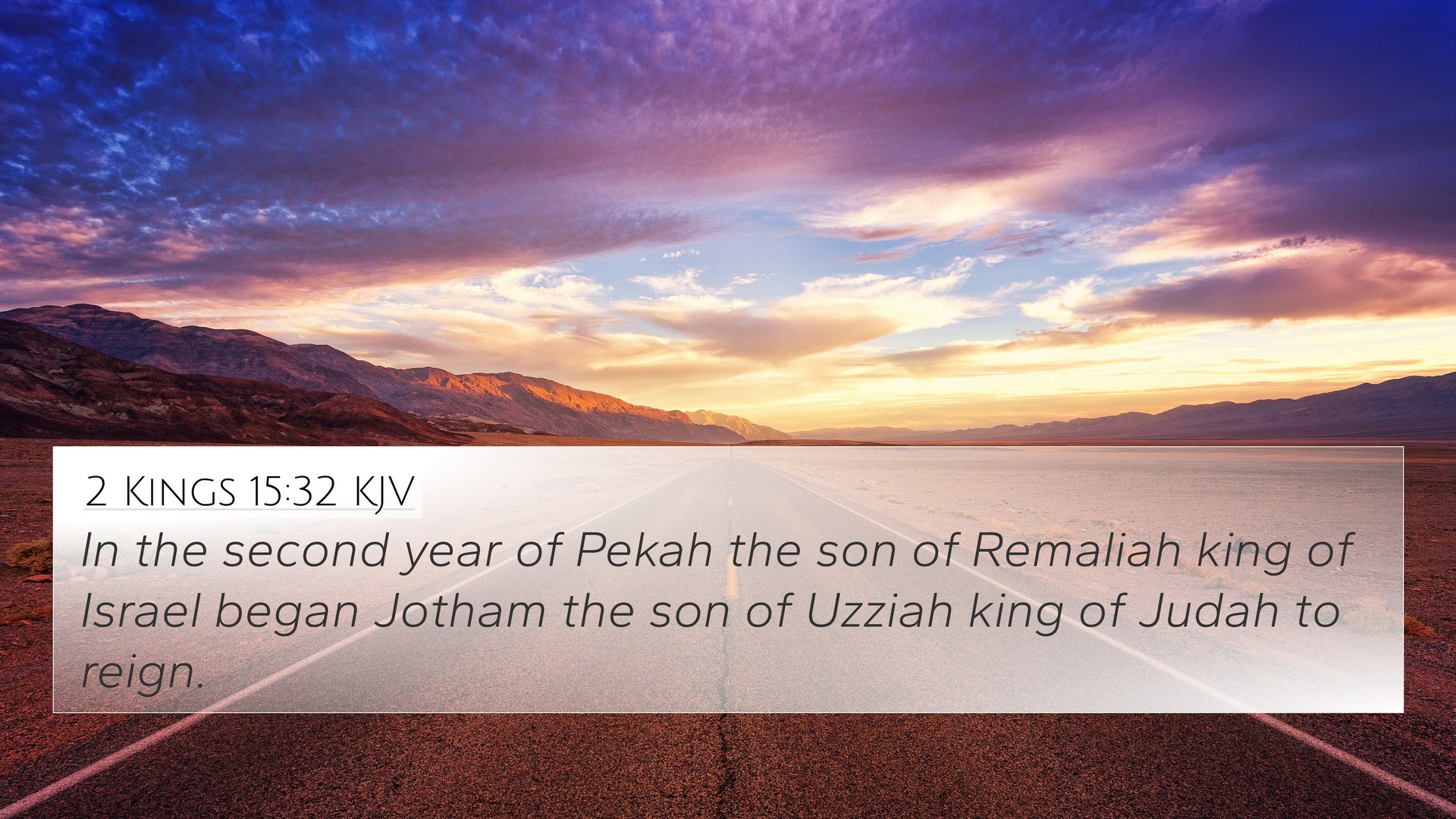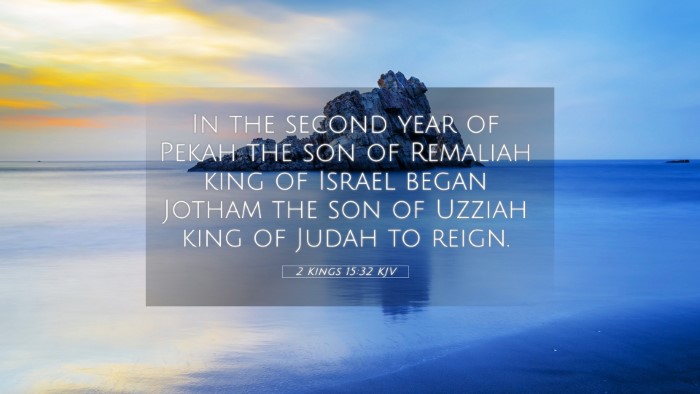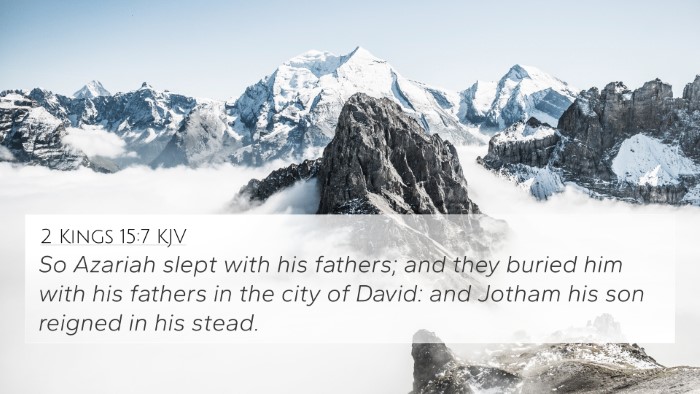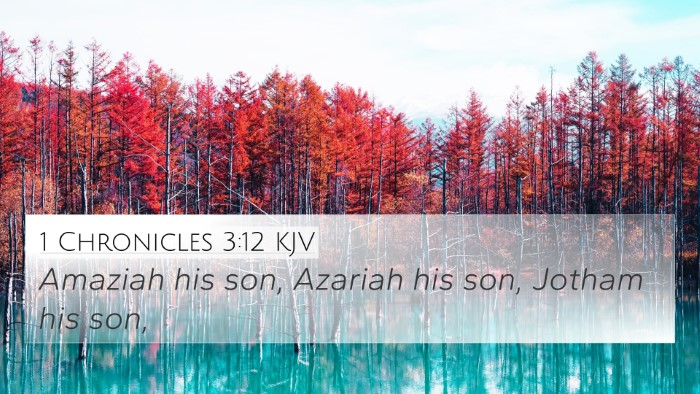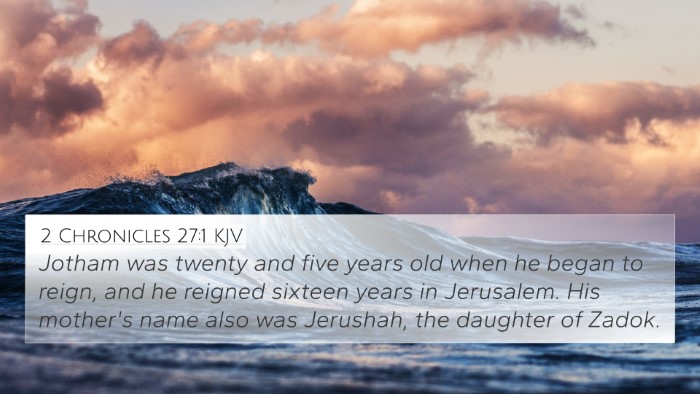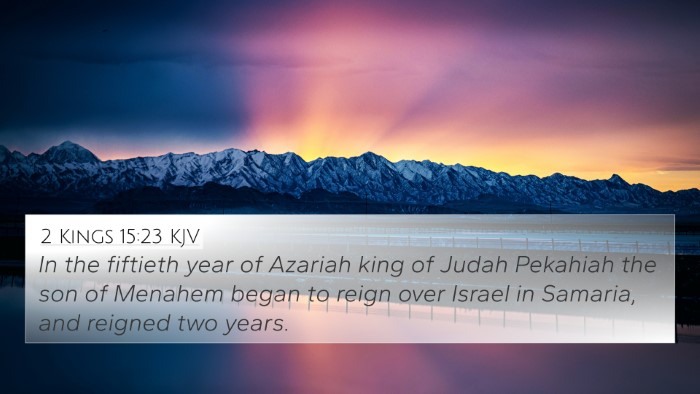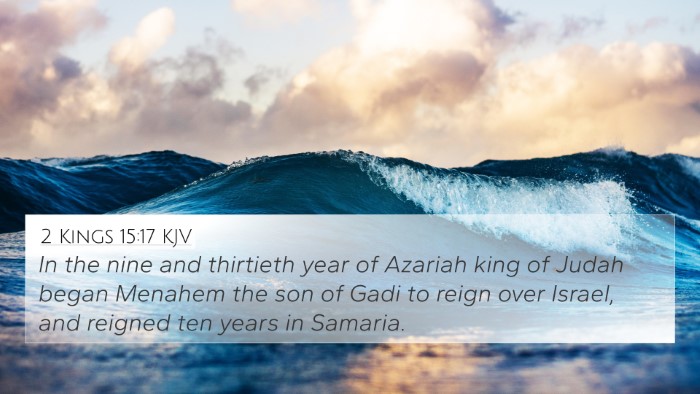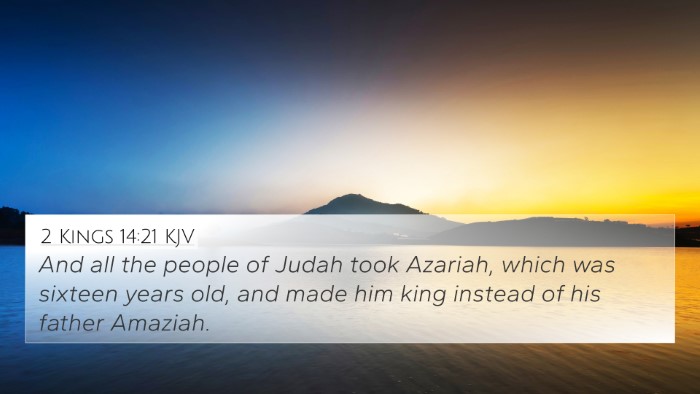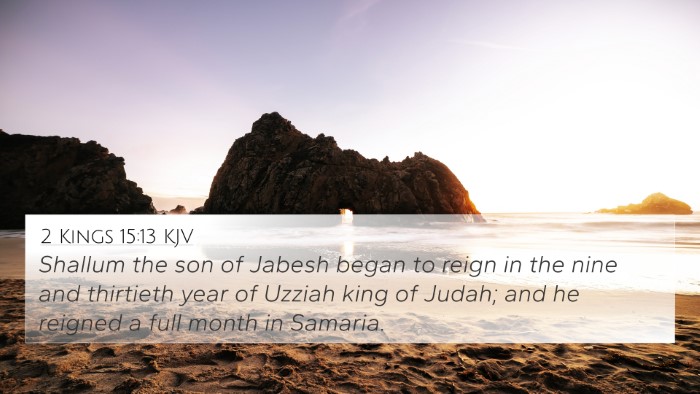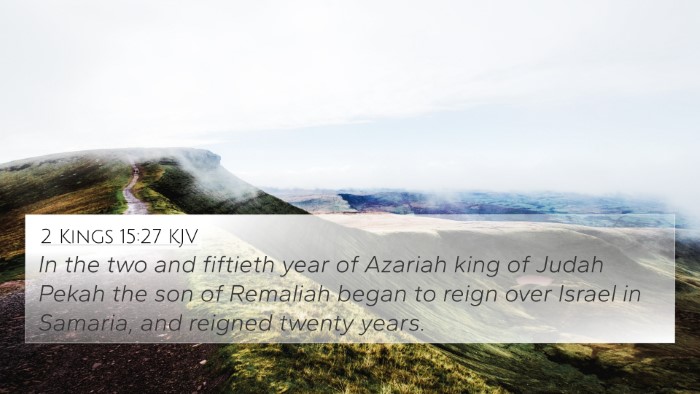Understanding 2 Kings 15:32
This verse states: "In the second year of Pekah the son of Remaliah, king of Israel, began Jotham the son of Uzziah king of Judah to reign." It marks a significant moment in the historical narrative of the kings of Judah and Israel.
Summary of Key Insights
2 Kings 15:32 serves to set the stage for the political landscape of both kingdoms at that time. Here are combined insights from notable public domain commentaries:
Historical Context
- Matthew Henry: Henry emphasizes the importance of understanding the timing of Jotham's reign concerning the reigns of both Pekah of Israel and his father. The reigns exemplify the divided state of the kingdom and the ongoing political upheaval that surrounded these monarchs.
- Albert Barnes: Barnes notes that this verse highlights the overlapping reigns of the kings and frames the narrative within the broader history of Israel and Judah. It provides a chronological reference that aids in linking the events of these kingdoms.
- Adam Clarke: Clarke elaborates on the genealogical importance of Jotham, pointing out his lineage from Uzziah and how that lineage fulfills certain prophetic and historical expectations in the larger biblical account.
Thematic Connections to Other Scriptures
This verse can be cross-referenced with several other passages, forming a web of connections that enhances our understanding of the political, spiritual, and prophetic landscape of the time:
- 2 Chronicles 27:1: This passage outlines further details of Jotham's reign, expanding on his character and accomplishments.
- Isaiah 7:1: This verse references the conflict with the kingdoms during Jotham’s time, providing insight into the geopolitical tensions.
- Matthew 1:9: The lineage of Jotham is significant in the genealogy of Jesus, emphasizing the continuity of God's plan through these kings.
- Hosea 1:1: The prophet Hosea's ministry overlaps with Jotham's reign, offering a prophetic perspective during this turbulent era.
- Micah 1:1: This verse also connects to the prophetic voices that arose during Jotham's rule, signifying God’s communication with His people.
- 2 Kings 15:27: This verse discusses the reign of Pekah, providing a direct comparison to Jotham's leadership in Judah.
- 1 Chronicles 3:12: It offers genealogical details that trace the royal lineage, showing the significance of Jotham's reign in the greater biblical narrative.
Why Cross-Referencing is Beneficial
Cross-referencing Bible texts can deepen understanding of Scripture. By linking verses, one can:
- Gain insights into the historical context of the biblical narrative.
- Recognize thematic connections and parallels between different books of the Bible.
- Engage in comparative Bible verse analysis that sheds light on prophetic fulfillments.
Tools for Bible Cross-Referencing
For those looking to explore cross-referencing in the Bible further, there are multiple tools and resources available:
- Bible Concordance: A useful tool for finding related verses.
- Bible Reference Resources: These can guide users in finding thematic connections.
- Cross-Reference Bible Study Guides: These materials can aid in understanding the linkage between verses.
Conclusion
2 Kings 15:32 may seem like a simple historical note, but it opens the door to understanding the complex relationships between the kings of Israel and Judah, the prophetic voices of the time, and the overarching narrative of Scripture. Through cross-referencing, we can find other verses that relate to this moment, bringing a richer understanding of the Bible.
For further personal Bible study, consider how to find cross-references in the Bible and explore the intricate tapestry of inter-Biblical dialogues. By identifying connections between the Old and New Testament, one can appreciate the depth of God’s word.
